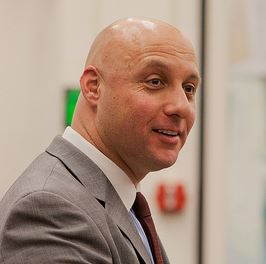Airbnb is now facing greater opposition in New York thanks to a recent bill signed by Governor Andrew Cuomo which bans advertising of short-term rentals.
Under the current Multiple-Dwelling Law, it is illegal to rent out entire apartments for fewer than 30 days if the tenant is not residing in the complex. According to the Airbnb site:
The New York State Multiple Dwelling Law restricts renting out a Class A multiple dwelling for periods of fewer than 30 days. The definitions of “Class A” and “multiple dwelling” can be found in Sections 4-7 and 4-8 of Article 1 of the Multiple Dwelling Law. The law exempts rentals to a “boarder, roomer or lodger,” which has been interpreted to mean that, in general, if a guest shares the apartment with a permanent resident who is present for the duration of the rental (i.e., a “shared space” rental), it is permissible under the Multiple Dwelling Law.”]
The new legislation imposes fines up to $7,500 on people who advertise rentals that are for under 30 days.
This is touted as a victory for New York City residents and will supposedly protect them from higher rental prices caused by people who use Airbnb to advertise their dwellings. Moreover, legislators who stand against Airbnb claim that apartment owners are kicking out low-income renters and preventing new low-income renters from renting a unit, preferring instead to open up spaces to put on Airbnb at higher prices.
Just as taxi companies oppose Uber, the hotel union supports Governor Cuomo’s action. They want the government to do for them what they cannot do for themselves—beat the competition.
Airbnb tried to compromise by proposing a limit of one listing per house and providing a registry of hosts to city regulators. However, this was not enough, and the governor still signed the bill.
A true free-market position would be that private property owners should have the right to do with their properties what they wish, provided they are not violating others’ property rights. Apartment owners should be able to rent out their rooms as they see fit, and should be able to charge whatever they want. Of course, visitors still have the freedom to reject that price and to find a motel or hotel.
The argument that allowing apartment owners to list their units on Airbnb will harm low-income residents assumes that it is the duty of apartment owners to provide housing to city residents. It isn’t. Apartment owners’ only responsibility is to make a profit for themselves and to honor the contracts they’ve entered into with tenants.
Conversely, the notion that low-income residents have a right to live in an apartment, another person’s private property, is arrogant. Admittedly, some citizens who need an apartment will not be able to find as many units if apartment owners list their units on Airbnb, but that is not the problem of the property owners. They should be able to use their buildings in the manner they see fit. Apartment owners are businesses, not charities. The true source of the housing crisis in New York City are the government rules and regulations like rent control laws that take away the incentive to build apartment buildings and that give current renters an incentive to stay in a larger apartment that they wouldn’t stay in if they had to pay the market price. Allowing a free market in rental housing would give builders an incentive to build more, and it would give homeowners an incentive to open up their homes to renters.
Now, if an apartment owner has a policy that prevents his or her tenants from renting their individual units out to visitors or listing their apartments on Airbnb, then that is perfectly consistent with a free-market philosophy. If a renter in such a building says, “But I should be able to do what I want with my apartment!” the response is, “No that is actually not true.” The renter does not own the building; therefore, the renter does not own the individual unit. Consequently, it is not and should not be the renter’s decision.
Government policies that restrict businesses in the name of “protecting the consumer” usually have a special-interest group behind the policy. Some businesses use the power of government coercion to help them restrict competition.
Governor Cuomo is wrong on this issue. In the name of protecting New York City residents, he is actually hurting New Yorkers by preventing them from using their homes to earn extra income. Furthermore, with less income, these people have less money to spend on restaurants, cafes, and theaters, hurting those business owners as well.
The best policy is to allow private property owners the freedom to do what they want with their property.



